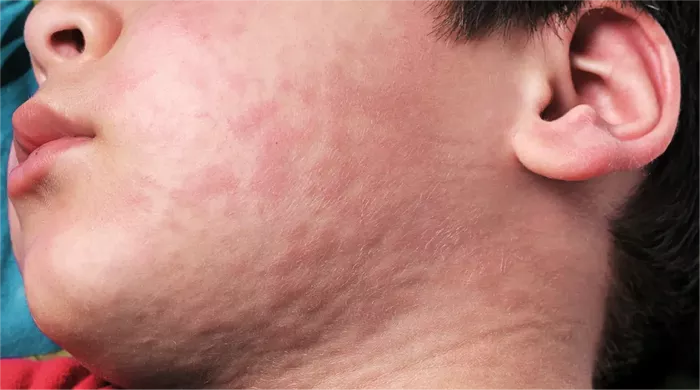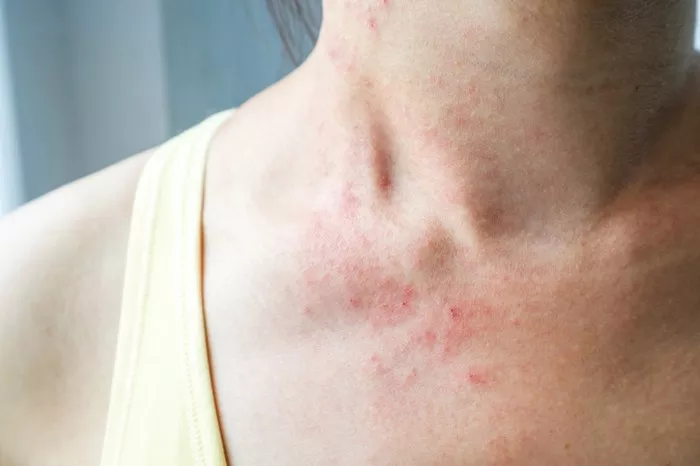Hives, also known as urticaria, can be a perplexing and uncomfortable skin condition characterized by itchy, raised welts or bumps on the skin. These welts can vary in size, shape, and color, and they often appear suddenly and disappear just as quickly. One of the most common sensations associated with hives is intense itching, accompanied by a sensation of heat or burning. While hives are typically harmless and short-lived, their itchy and hot nature can significantly impact an individual’s quality of life. In this article, we delve into the intricacies of hives, exploring their causes, symptoms, treatment options, and management strategies to provide a comprehensive understanding of this dermatological concern.
The Physiology of Hives: Unraveling the Itch and Heat
To comprehend why hives manifest with such pronounced itchiness and heat, it is essential to grasp their underlying physiology. Hives occur when certain cells in the skin release histamine and other chemicals into the bloodstream. Histamine, a key player in the body’s immune response, triggers a cascade of events that result in blood vessel dilation and leakage, leading to the characteristic raised welts and redness associated with hives. Additionally, histamine stimulates nerve endings in the skin, eliciting sensations of itching and heat. Consequently, the simultaneous release of histamine and other inflammatory mediators contributes to the intense itchiness and heat experienced by individuals with hives.
Triggers of Itchy and Hot Hives: Unveiling the Culprits
Identifying the triggers of hives is paramount in managing this condition effectively. Hives can arise from a myriad of factors, including allergic reactions to food, medications, insect stings, or environmental allergens. Non-allergic triggers such as stress, heat, pressure on the skin, and certain infections can also precipitate hives. Understanding individual triggers is pivotal in preventing recurrent episodes of itchy and hot hives and formulating personalized management strategies.
Navigating the Landscape of Hives Symptoms
The symptoms of hives extend beyond mere itchiness and heat, encompassing a spectrum of manifestations that can vary in severity and duration. Alongside the characteristic raised welts and itching, individuals with hives may experience swelling (angioedema) of the lips, eyelids, hands, feet, or throat, which can pose serious health risks if the airway becomes compromised. Additionally, hives may be accompanied by other systemic symptoms such as fatigue, headache, and gastrointestinal disturbances. Recognizing the diverse array of symptoms associated with hives is crucial for accurate diagnosis and prompt intervention.
Treatment Modalities for Itchy and Hot Hives: Calming the Storm
Managing the itchiness and heat of hives necessitates a multifaceted approach tailored to the individual’s specific triggers and symptomatology. Antihistamines, available over-the-counter or by prescription, are the cornerstone of hives treatment, effectively blocking the action of histamine and alleviating itching and redness. For severe or refractory cases of hives, oral corticosteroids may be prescribed to suppress inflammation and provide symptomatic relief. In cases where allergic triggers are identified, allergen avoidance is paramount in preventing recurrent hives outbreaks. Additionally, lifestyle modifications such as stress management techniques, maintaining optimal skin hydration, and avoiding triggers such as tight clothing or extreme temperatures can complement pharmacological interventions in managing itchy and hot hives.
The Role of Prevention and Long-term Management
While hives can be unpredictable and recurrent, proactive measures can mitigate their occurrence and severity. Engaging in meticulous trigger avoidance, whether it be avoiding known allergens or minimizing exposure to environmental factors that exacerbate hives, is fundamental in preventing flare-ups. Moreover, establishing a comprehensive management plan in collaboration with a healthcare provider can empower individuals to navigate the challenges posed by itchy and hot hives effectively. Regular follow-up appointments allow for ongoing assessment of treatment efficacy and adjustment of management strategies as needed, ensuring optimal control of symptoms and enhancing overall quality of life.
Conclusion
In conclusion, the itchy and hot nature of hives can present significant challenges for affected individuals, impacting their daily functioning and quality of life. By unraveling the physiological mechanisms underlying hives and elucidating their diverse array of triggers and symptoms, healthcare providers can empower patients with the knowledge and tools necessary to effectively manage this dermatological concern. Through a combination of pharmacological interventions, trigger avoidance strategies, and proactive long-term management, individuals can navigate the unpredictable landscape of hives with confidence and reclaim control over their skin health.


























